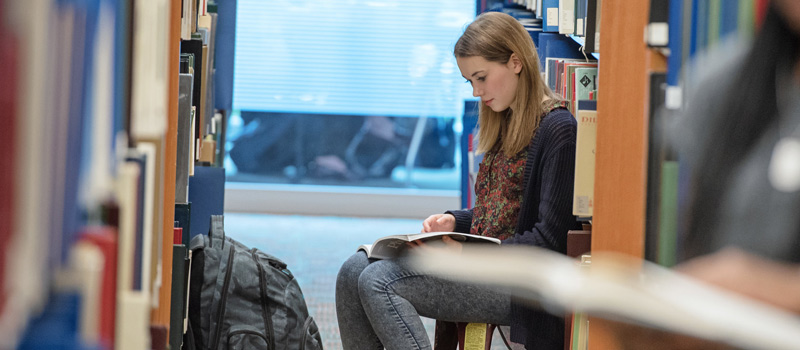Contract Cheating and File Sharing
Avoid these risky forms of academic misconduct.
Academic file-sharing and contract cheating are forms of academic misconduct that carry extra risks for students who engage with them.
Distributing and sharing copyrighted course materials and files is not only academic misconduct, but is also illegal as it violates copyright laws.
Besides being a form of academic misconduct, contract cheating can cost students extra money. Contract cheating companies may aggressively pressure students to continue using their services once they have the students’ private information.
Many of these companies unethically promote both file sharing and contract cheating. It is important for students and other members of the UBC community to educate themselves on the risks associated with interacting with these types of websites and the harms that come from sharing and obtaining materials.
Things to reflect on
Who is profiting from materials shared online?
What harm is done when your instructor’s copyrighted materials are shared illegally?
How can you determine if a company is a trustworthy source of academic help?
What are some of the risks associated with these sites beyond academic misconduct allegations?
What is contract cheating?
Contract cheating is having an external party do your academic work in your place. Examples of contract cheating include purchasing an essay from a person or company, and having a friend or family member do your work or assessments for you. Contract cheating is academic misconduct. Contract cheating services such as impersonating someone to write an exam for someone, or allowing someone to use your work for academic credit, is a breach of academic integrity. Many of the same sites that heavily advertise unethical tutoring services to students are really contract cheating companies in disguise. Avoid contract cheating by using official UBC academic supports.

Forms of contract cheating
Contract cheating comes in various forms. Examples of contract cheating include purchasing an essay from a person or company and having a friend or family member do your work for you. Regardless of who does the work, contract cheating is academic misconduct.

Why should I avoid contract cheating?
Contract cheating is a serious offense that can have serious consequences. Engaging in contract cheating hinders your learning and leaves you less prepared for your future career.
It can be tricky to tell when an academic website is actually selling contract cheating services. Keeping away from online tutoring services not affiliated with UBC is a good practice to adopt, as some of these websites can use deceptive practices. If you find yourself in this situation, please reach out to your academic advising office for advice.

How can I avoid contract cheating?
The best way to avoid contract cheating is to not take part and reach out for help instead. Official services, such as AMS tutoring (UBC Vancouver) or the Student Learning Hub (UBC Okanagan) and department-specific help centres can support you. Practice good time management to avoid feeling pressured to cheat. Talk to your instructor if you are unable to complete an assignment. You may be able to work out an arrangement that maintains your integrity and ensures you learn the course concepts.
What is academic file-sharing?
Academic file-sharing is the illegal distribution of copyrighted course materials, assignment documents, and assessments. Commercial academic websites have made it easy for people to share copyrighted materials. Since these websites are common, sharing copyrighted materials has been normalized. Students should avoid sharing course materials online unless they have explicit permission from the copyright holder.

Why should I avoid file sharing sites?
Material on commercial file-sharing sites may be out-of-date or misleading. It can be risky to rely on materials from these sites. The most up-to-date resources to use for studying are those provided directly by your instructor.
Academic websites often require you to pay a fee or upload documents to obtain access to the materials on the site, which constitutes a copyright violation.
Do not share your personal information with these companies and do not pay to access the content.

Are course materials subject to copyright laws?
Unless you have received explicit permission from one of the copyright holders, you should assume their resources are subject to copyright laws. Instructional materials are the intellectual property of the instructor who created them.
Files that can be subject to copyright laws include syllabi, notes, slides, worksheets, assessments, and assignments. Sharing course notes with a classmate can be ok, but not if the notes are copied and distributed widely or if they are distributed for profit.

Can I share my own work?
Documents containing your own work, such as notes in your personal words or course projects, are your own intellectual property and can be shared if you wish to. However, before you do, consider whether the website is an ethical company. Ensure sharing does not constitute collusion, and think about who is profiting from you sharing these materials.
Resources
References
- Contract Cheating, Dr. Thomas Lancaster
- Rogerson, A., Basanta, G. “Peer-to-peer file sharing and academic integrity in the Internet age.” in Handbook of academic integrity, ed. T. Bretag (Springer, 2016,) 273-285. http://dx.doi.org/10.1007/978-981-287-098-8_55
- Stoesz, B. M., Seeland, J. “Sharing is caring? Exploring academic integrity and file-sharing behaviours.” Presented virtually for the Taylor Institute for Teaching and Learning (University of Calgary, Calgary, AB, August 2020).

